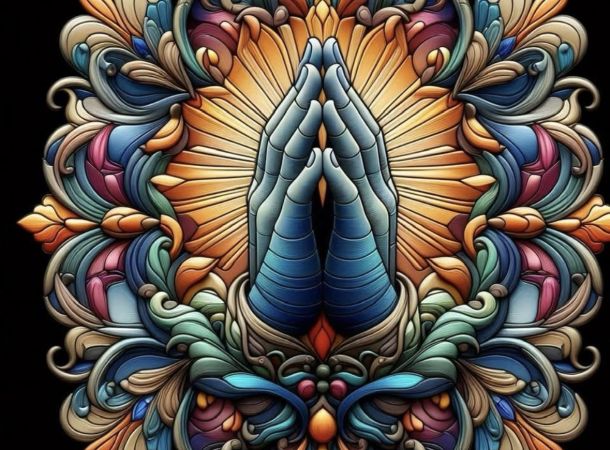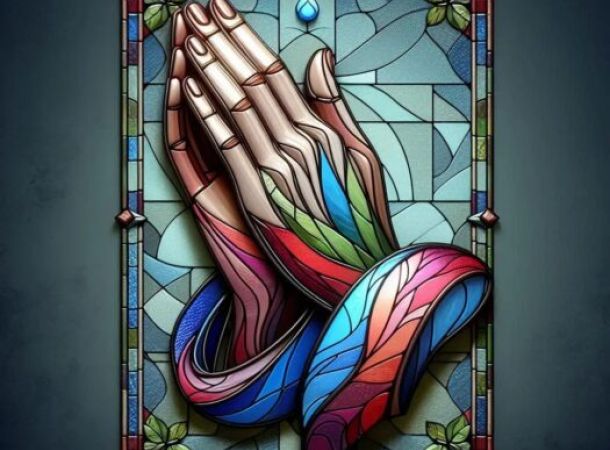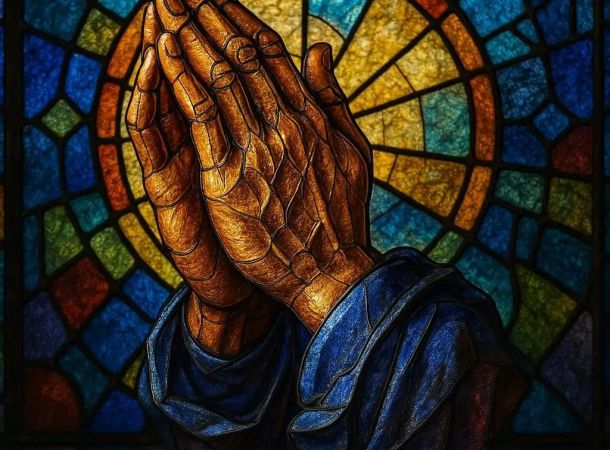Face to Face
One of my first concerts as a young tyke was a punk band called Face to Face. Little did I know that much of the Bible teaches us to walk face-to-face with God and others. In our current Torah Portion, Vayishlach, meaning “And He Sent,” we find the word face resounding as Jacob sees God face to face and reunites with his brother face to face. The last time these brothers were around each other, Jacob was fleeing from the face of Esau, and now he is running towards him. The story of Jacob tells us just how hard it is to walk before the face of God and be blameless, as well as the difficulty of walking face-to-face with others. The Bible describes this challenge as wrestling. We will not escape this wrestling, but we can endure it like Jacob did, showing resilience and determination in the face of struggle.
What does it look like to walk before the face of God? First, we see that Noah was righteous before the face of God in his generation (Gn 7.1), but Nimrod was a mighty hunter against the face of God (the Hebrew word al in Gn 10.9 can translate as against). Next, we have Abraham speaking to the Holy One, who encourages him to “Walk before [My face] and be blameless” (Gn 17.1). What a tall order! Abraham contrasts with Adam and Chavah, who hide from God’s face in the Garden of Eden (Gn 3.8). This brings us to the current Torah Portion, where Jacob names the place of his wrestling match Peniel, meaning “The face of God.” There are a couple of things to notice. First, Jacob was alone. We usually wrestle with the Holy One all by ourselves, with no one there to defend or help us; it is one-on-one combat. Number two, Jacob did not win this fight, but rather, he endured until daybreak. Many of our battles with the Holy One come when we enter a dark time when we cannot find the light, the good, the reason for the season. In those moments, we can remember that Jacob endured until the light peaked through. Third, our face-to-face encounters with God often leave us with a physical reminder. With Jacob, it was a limp that stemmed from when the man-angel touched his hip socket. In the Apostolic Writings, Paul has a physical ailment after his wrestling match with the Holy One (Gal 4.15), possibly concerning his eyesight. It may look different for each of us, but this physical sign could be a daily reminder of our experience and victory. Fourth, I love how God asked Jacob his name as if to ask, who are you?
Genesis 32:28: And He said, “Your name shall no longer be called Jacob, but Israel; for you have struggled with God and with men, and have prevailed.”
Jacob means “heel” or supplanter, which stems from Genesis 27:36. God changed his identity by renaming Jacob Israel, translated as Prince with God but means wrestles with God and man yet endures. This name change signifies a transformation in Jacob’s character and his relationship with God. We should allow the Holy One to give us a new identity, just as Jacob did. Many times, our names are our most prominent quality. For instance, my son’s name is Asher, and he truly is happy and blessed. I wonder if Jacob held onto the heel of the angelic man when he desired a blessing. In that case, he changed his name by his actions. Originally called Jacob because he held onto the heel of his brother Esau in the womb, he now held onto the heel of a manifestation of the Holy One to receive a blessing. Do we fight God for blessings? I will from now on! Esau disregarded his spiritual inheritance and blessing by trading it for instant gratification, but Jacob endured a painful experience to gain the Holy One’s blessing. These examples are what it looks like to walk face-to-face with God; now, let’s look at what walking with our fellow humans looks like.
Jacob was afraid of his brother Esau because, as far as he was aware, Esau still wanted him dead. Sometimes, in our relationships, we fear hard conversations and negative consequences causing us to avoid repair after conflict because of what it may require of us.
Genesis 32:11: Deliver me, I pray, from the hand of my brother, from the hand of Esau; for I fear him, lest he come and attack me and the mother with the children.
Even though Jacob was afraid, he bravely sought peace and reconciliation. Accountability and restitution are required when we wrong someone and cause tension within a relationship. It would not have been enough for Jacob to say, “Sorry bro, I know I took your blessing and birthright, but twenty years have passed, and I think it is time for you to move on.” Esau would have rightfully kicked him in the shins. Jacob did the right thing by giving Esau the blessing he swindled from him. The Levitical instructions tell us that when we steal from someone, we are to repay them double (Lv 6.5-6). I imagine the gifts Jacob gave Esau as an “I’m sorry” were more than the financial blessing Esau would have gained had he inherited his father’s original blessing.
Genesis 32:13: So he lodged there that same night, and took what came to his hand as a present for Esau his brother.
I have previously mentioned how the number seven in the Bible can symbolize wholeness or completeness. When Jacob bows his face to the ground before his brother seven times, it communicates complete humility.
Genesis 33:3: Then he crossed over before them and bowed himself to the ground seven times, until he came near to his brother.
Pride is the number one enemy that keeps us from repairing our relationships. It is the ultimate enemy of our intimacy with God and in our human relationships as it takes vulnerability to take accountability and bravely face our consequences. Consequences for our actions are not God punishing us, they are a natural response to our choices. Whenever we take accountability and say “I’m sorry,” our wrongs are covered by the Holy One.
Proverbs 28:13: He who covers his sins will not prosper, but whoever confesses and forsakes them will have mercy.




Leave a Reply